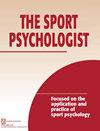A Proposed Three-Stage Postperformance-Routine Framework
IF 1.2
4区 心理学
Q3 HOSPITALITY, LEISURE, SPORT & TOURISM
引用次数: 0
Abstract
Research has supported the use of preperformance routines to successfully manage the period preceding sport performance. In contrast, little research has been done on the period succeeding skill execution. This article introduces a three-stage model for postperformance routines (PoPR) for novice motor learning and performance including emotion regulation, performance analysis and correction, and continuation to the next performance trial. To test this model, 38 novice golfers completed a putting task after random assignment to either a PoPR or a control condition. Putting performance was measured after each putt, and self-efficacy, arousal, affect, and perceived task difficulty were recorded every 10 putts. Participants in the PoPR group improved their performance from baseline to postintervention (d = −0.55), while performance in the control group remained unchanged (d = −0.01). No significant differences were observed for performance consistency, emotions, self-efficacy, and perceived task difficulty. Thus, practitioners implementing a PoPR in novice athletes may consider the proposed three-stage framework for improvements in motor learning and performance.一个建议的三阶段表演后常规框架
研究支持使用预表演惯例来成功地管理运动表演前的一段时间。相比之下,对后期技能执行的研究却很少。本文介绍了一种针对新手运动学习和表现的三阶段训练模式,包括情绪调节、表现分析和纠正以及继续进行下一阶段的表现试验。为了验证这一模型,38名高尔夫新手在随机分配到PoPR或控制条件后完成了推杆任务。每次推杆后测量推杆表现,每10次推杆记录自我效能、兴奋、影响和感知任务难度。从基线到干预后,PoPR组参与者的表现有所改善(d = - 0.55),而对照组的表现保持不变(d = - 0.01)。在表现一致性、情绪、自我效能感和感知任务难度方面没有观察到显著差异。因此,在新手运动员中实施PoPR的从业者可以考虑提出的三阶段框架来改善运动学习和表现。
本文章由计算机程序翻译,如有差异,请以英文原文为准。
求助全文
约1分钟内获得全文
求助全文
来源期刊

Sport Psychologist
医学-心理学
CiteScore
2.80
自引率
6.20%
发文量
18
审稿时长
>12 weeks
期刊介绍:
TSP is a scholarly refereed journal designed as a forum to stimulate thought and disseminate knowledge that focuses on the application and practice of sport psychology. A special emphasis of the journal is on the delivery of psychological services to practitioners such as athletes and coaches. TSP is international in scope and is receptive to diverse methodologies. TSP is published for sport psychology specialists who engage in research, teaching, and/or intervention in a variety of contexts including academic, public, and private settings. The journal is also intended for practitioners such as coaches who have training and interest in sport psychology.
 求助内容:
求助内容: 应助结果提醒方式:
应助结果提醒方式:


